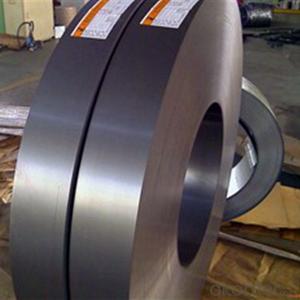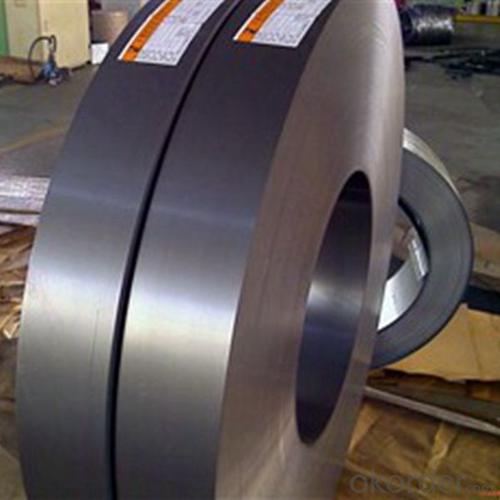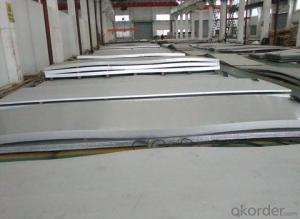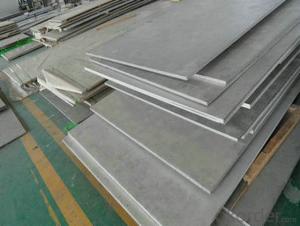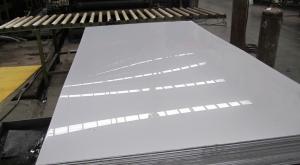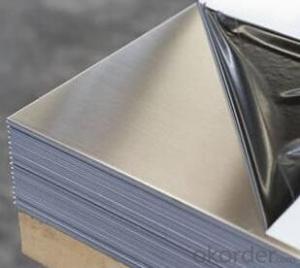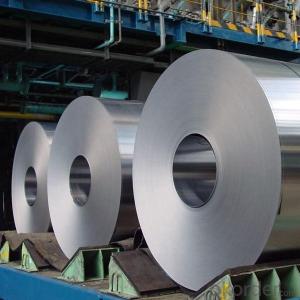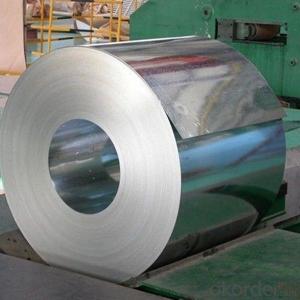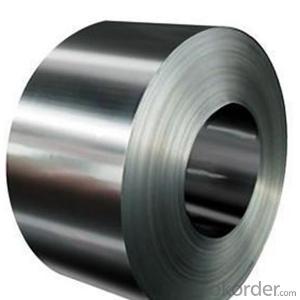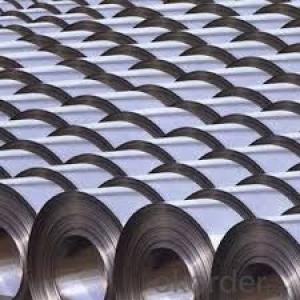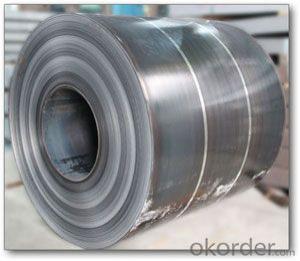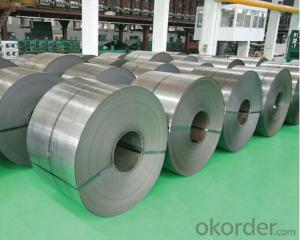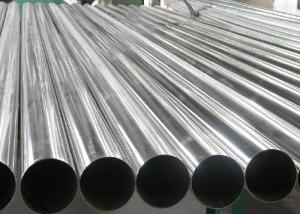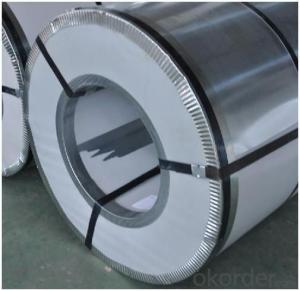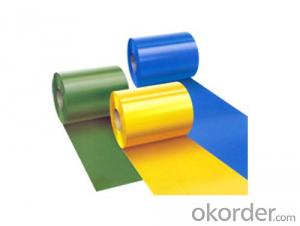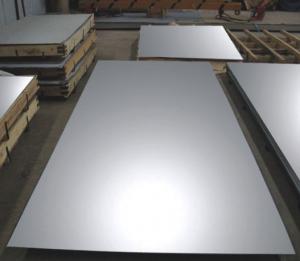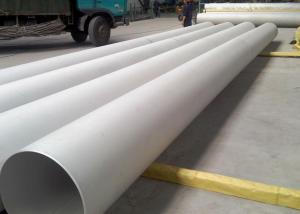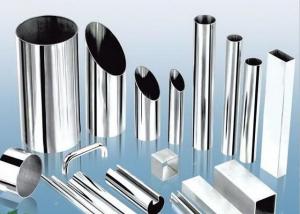Stainless Steel Hot Rolled Steel Coils NO.1 Finish Made in China
- Loading Port:
- Tianjin
- Payment Terms:
- TT OR LC
- Min Order Qty:
- 25 m.t.
- Supply Capability:
- 20000 m.t./month
OKorder Service Pledge
OKorder Financial Service
You Might Also Like
Specification
Products Description for Stainless Steel Coils/Sheets:
Product | stainless steel coils/plates/sheets | ||
Discharge Port | Any Port, China | ||
Size | Coils | Cold Rolled: | Thickness0.3-8mm,Width:280-2100mm |
Hot Rolled : | Thickness3-14mm,Width:650-2100mm | ||
Plates | Thickness2-80mm,Width:1500-3000mm | ||
Coil Weight | About 20 Tons | ||
Grade | 201,202,304/304L/304H,316/316L/316H,321/H,310S,409/L,430 etc. | ||
Technique | Hot Rolled/Cold Rolled | ||
Finish | 2B, BA, 2D, No1, No2, No4,NO.8,SB etc | ||
Edge | Mill Edge / Slitting Edge | ||
Package | In bundles, or as customer's requirement | ||
Place of Origin | Made in China | ||
MOQ | 20 Tons | ||
Description for Stainless Steel Coils/Sheets:
Prodcut:Stainless Steel Coil
Thinckness: 0.20mm-8.0mm
Width:1000mm, 1219mm(4 feet), 1250mm, 1500mm, 1524mm(5 feet),
1800mm, 2000mm, 2200mm, 2500mm,and customizable
Ni:0.8~1.2% Cu:1.4~1.5% Cr:14
Standard: ASTM, JIS, GB, BS, DIN etc
Grade: 200series&300series&400series
Surface finish: 2B, BA, 8K, 6K, Mirror Finished, No1, No2, No4, Hair Line with PVC
Manufacture technology: cold rolled/hot rolled
Thickness Tolerance: +/-0.1mm
Width Tolerance: +/-10mm
200 Seriers: 201,202
300 Seriers: 301, 304, 304L, 316L, 309, 310S,321
400 Seriers: 410, 410S, 409L,430
Detail picture for Stainless Steel Coils/Sheets
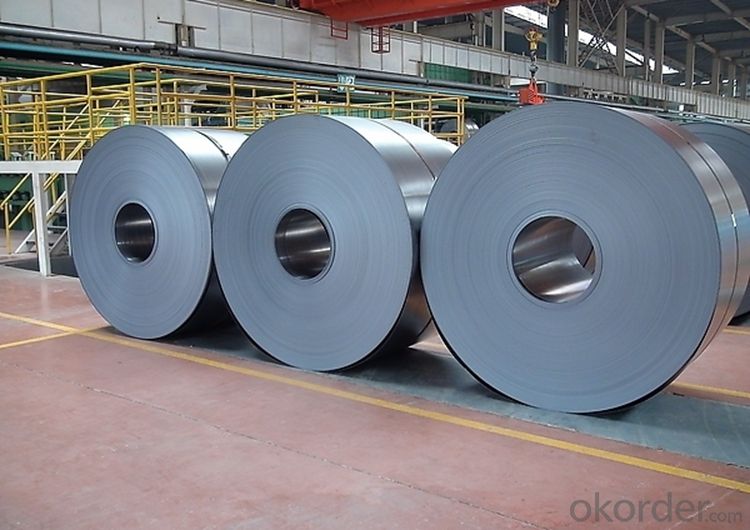
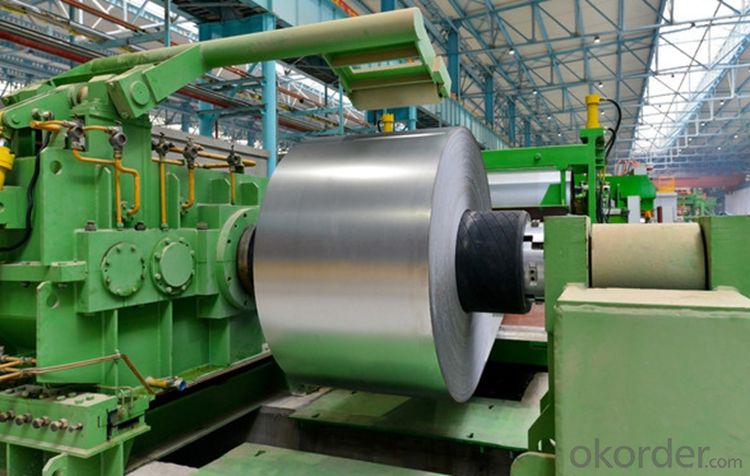
Packaging & Delivery for Stainless Steel Coils/Sheets:
Packaging Detail Standard export packing or following customer's demand
Delivery Time: Within 30-40 days after deposit or according to the order quantity
Export Markets for Stainless Steel Coils/Sheets:
Our target market is the international market. Every year we export most of products to countries like India, Pakistan, South Korea, Brazil, Australia, South Africa, Spain, Sri Lanka, Taiwan, Hong Kong, etc.
FAQ for Stainless Steel Coils/Sheets:
Q:What are the advantages of your company ?
A: We have many professionals, technical personnel, more competitive prices and best after-dales service than other stainless steel companies.
Q:Can you arrange the shipment ?
A: Sure we can help you with the shipment. We have forwarders who have cooperated with us for many years.
- Q: What are the different types of stainless steel sheet edges?
- Stainless steel sheets come in three main types of edges: mill edge, slit edge, and deburred edge. 1. The mill edge is the most common type and is produced during manufacturing. It has a rough, unfinished edge that is typically straight and perpendicular to the sheet's surface. It is suitable for applications where a smooth edge is not necessary. 2. Slit edge sheets are created by cutting large rolls of stainless steel into narrower widths. These edges are smoother and more precise compared to the mill edge. They are commonly used in applications that require a polished and precise edge, such as architectural finishes or fabrication processes. 3. A deburred edge is achieved by removing any sharp or rough edges from the stainless steel sheet. This is done to improve safety during handling or installation. Deburring can be done through grinding, sanding, or using specialized tools. The resulting edge is smooth and free from burrs or sharp protrusions. It's important to consider the specific application and requirements when choosing the edge type for a stainless steel sheet. Each type has its own advantages and limitations, and factors like aesthetics, functionality, and safety should be taken into account when selecting the appropriate edge for a project.
- Q: Can stainless steel sheets be used for walkways and platforms?
- Yes, stainless steel sheets can be used for walkways and platforms. Stainless steel is a durable and corrosion-resistant material, making it suitable for outdoor applications. It provides strength and stability, making it a popular choice for constructing walkways and platforms in various industries, including industrial, commercial, and architectural settings.
- Q: How do you remove fingerprints from brushed stainless steel sheets?
- To remove fingerprints from brushed stainless steel sheets, you can use a microfiber cloth or a soft cloth dampened with warm soapy water to gently wipe away the fingerprints. Avoid using abrasive cleansers or scrub brushes as they can damage the brushed finish. Dry the surface thoroughly with a clean cloth to prevent water spots.
- Q: 1mm how much is the thickness of the 304 stainless steel sheet a square?
- 1mm 304 stainless steel plate, about 160 yuan a square, this may be based on your amount to determine the amount of large, you can also pay the price, the amount of small may not be. Jiashan Rongchang sliding bearings can also provide 1mm 304 stainless steel plate self lubrication skateboards, it is composed of 3 layers
- Q: What is the electrical resistivity of stainless steel sheets?
- The electrical resistivity of stainless steel sheets varies depending on the specific grade or alloy composition of the stainless steel. Generally, stainless steel has a relatively low electrical resistivity compared to other materials, such as copper or aluminum. The resistivity can range from approximately 6.9 x 10^-7 ohm-meters (Ωm) for austenitic stainless steel to 7.2 x 10^-7 Ωm for ferritic stainless steel. It is important to note that these values are approximate and can vary slightly based on factors such as temperature and impurities in the stainless steel.
- Q: Are stainless steel sheets suitable for pharmaceutical equipment?
- Indeed, stainless steel sheets prove to be appropriate for pharmaceutical equipment. The pharmaceutical industry extensively utilizes stainless steel owing to its exceptional resistance to corrosion, remarkable strength, and hygienic attributes. Its ease of cleaning and sterilization renders it perfect for applications that demand utmost cleanliness and product purity. Moreover, stainless steel displays resistance to chemicals and can endure extreme temperatures, thereby making it suitable for a multitude of pharmaceutical procedures. Furthermore, stainless steel sheets can be tailored in terms of thickness, size, and finish to fulfill precise equipment specifications. On the whole, stainless steel sheets deliver longevity, dependability, and the indispensable sanitary properties indispensable for pharmaceutical equipment.
- Q: Can stainless steel sheets be used for electrical or electronic applications?
- Indeed, stainless steel sheets are applicable for both electrical and electronic purposes. Due to its remarkable electrical conductivity and resistance to corrosion, stainless steel proves to be an optimal material for a diverse range of electrical components. Electrical enclosures, switchgear, control panels, and various other electrical equipment commonly incorporate stainless steel. Moreover, its versatility allows stainless steel sheets to be fabricated into different forms and dimensions, rendering them suitable for a variety of electronic applications like printed circuit boards (PCBs), connectors, and terminals. Furthermore, the durability and ability to withstand high temperatures make stainless steel the preferred choice for electrical and electronic purposes in harsh environments.
- Q: What are the different types of stainless steel sheet finishes for sanitary applications?
- There are several different types of stainless steel sheet finishes that are commonly used for sanitary applications. These finishes are designed to provide a smooth and clean surface that is resistant to corrosion and bacteria growth. 1. #4 Brushed Finish: This is one of the most common finishes for stainless steel sheets used in sanitary applications. It has a brushed appearance that creates a uniform and consistent texture. It is easy to clean and maintain, making it ideal for environments where hygiene is crucial. 2. #8 Mirror Finish: This finish has a highly reflective surface that resembles a mirror. It is smooth and shiny, making it visually appealing and easy to clean. However, it is important to note that this finish may show scratches and fingerprints more easily than other finishes. 3. 2B Finish: This finish is often used for stainless steel sheets that will be further processed, such as in fabrication or welding. It has a dull and smooth appearance, providing a good base for additional treatments or coatings. 4. Satin Finish: Also known as a No. 4 finish, the satin finish has a low luster and a smooth texture. It is commonly used in sanitary applications where a clean and aesthetically pleasing surface is desired. 5. Bead Blast Finish: This finish is achieved by blasting the stainless steel sheet with fine glass beads. It creates a uniform, non-reflective surface that is easy to clean and resistant to corrosion. The bead blast finish is often used in food processing plants and pharmaceutical facilities. 6. Electropolished Finish: This finish involves an electrochemical process that removes a thin layer of the stainless steel surface, leaving behind a smooth and shiny appearance. It provides a high level of cleanliness and resistance to corrosion, making it suitable for sanitary applications in the pharmaceutical and biotech industries. It is important to consider the specific requirements of the sanitary application when choosing the appropriate stainless steel sheet finish. Factors such as corrosion resistance, ease of cleaning, and aesthetic appearance should be taken into consideration to ensure the best possible outcome.
- Q: What are the advantages of using stainless steel sheets in the aerospace industry?
- There are several advantages of using stainless steel sheets in the aerospace industry. Firstly, stainless steel has excellent corrosion resistance properties, which is crucial in environments with high moisture and temperature fluctuations. This helps to maintain the structural integrity of the aircraft and ensures longevity. Additionally, stainless steel sheets offer high strength-to-weight ratio, making them ideal for constructing lightweight yet durable components. They also possess high heat resistance, allowing them to withstand extreme temperatures that may be encountered during flight. Furthermore, stainless steel sheets can be easily formed and fabricated into complex shapes, providing design flexibility. Overall, these advantages make stainless steel sheets a reliable and efficient choice for various aerospace applications.
- Q: What are the costs of stainless steel sheets compared to other materials?
- The costs of stainless steel sheets can vary depending on several factors such as the grade, thickness, size, and finish of the sheets. Generally, stainless steel sheets tend to be more expensive than other materials like aluminum or mild steel. This is primarily due to the higher production costs and the unique properties of stainless steel. Stainless steel is known for its corrosion resistance, durability, and aesthetic appeal, which makes it a popular choice in various industries such as construction, automotive, and manufacturing. However, these desirable qualities come at a higher price point. Compared to aluminum sheets, stainless steel sheets are typically more expensive. Aluminum is a lightweight material with good corrosion resistance, but it is not as strong or durable as stainless steel. Therefore, stainless steel is often preferred in applications where strength and longevity are crucial. When compared to mild steel, stainless steel sheets are also more costly. Mild steel is a commonly used material due to its affordability, but it lacks the corrosion resistance and aesthetic appeal of stainless steel. Stainless steel is often chosen over mild steel in applications where exposure to moisture, chemicals, or harsh environments is a concern. It is important to consider the specific requirements of the project when evaluating the costs of stainless steel sheets compared to other materials. While stainless steel may have a higher upfront cost, its long-term benefits, such as reduced maintenance and replacement costs, can often outweigh the initial investment. Additionally, the unique properties of stainless steel may make it the only viable choice for certain applications, further justifying its higher cost.
Send your message to us
Stainless Steel Hot Rolled Steel Coils NO.1 Finish Made in China
- Loading Port:
- Tianjin
- Payment Terms:
- TT OR LC
- Min Order Qty:
- 25 m.t.
- Supply Capability:
- 20000 m.t./month
OKorder Service Pledge
OKorder Financial Service
Similar products
Hot products
Hot Searches
Related keywords
